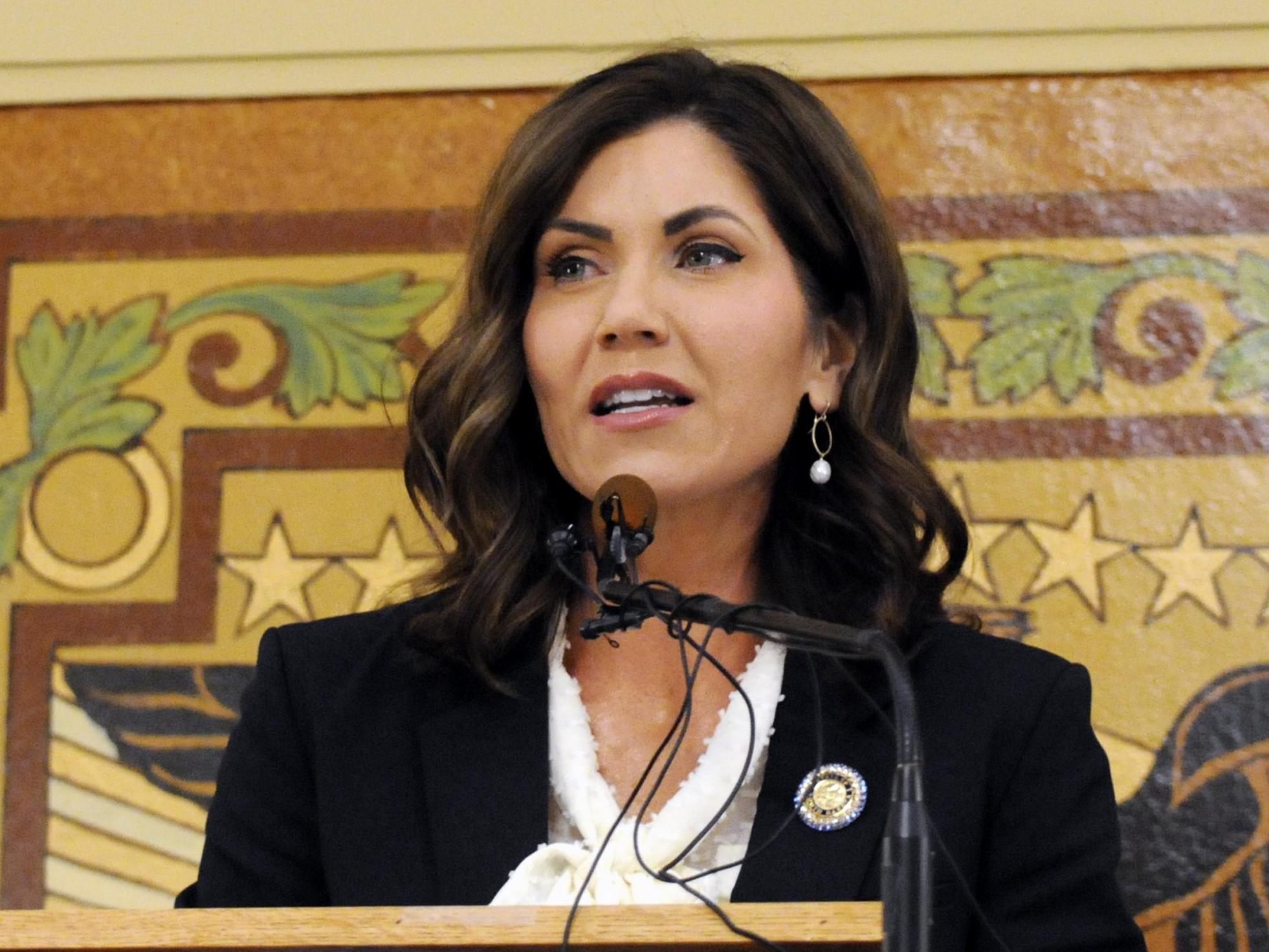South Dakota governor threatens Native American tribes with legal action if they do not remove coronavirus checkpoints
Oglala Sioux Tribe and the Cheyenne River Sioux Tribe receive letters from Governor Kristi Noem for travel checkpoints

Your support helps us to tell the story
From reproductive rights to climate change to Big Tech, The Independent is on the ground when the story is developing. Whether it's investigating the financials of Elon Musk's pro-Trump PAC or producing our latest documentary, 'The A Word', which shines a light on the American women fighting for reproductive rights, we know how important it is to parse out the facts from the messaging.
At such a critical moment in US history, we need reporters on the ground. Your donation allows us to keep sending journalists to speak to both sides of the story.
The Independent is trusted by Americans across the entire political spectrum. And unlike many other quality news outlets, we choose not to lock Americans out of our reporting and analysis with paywalls. We believe quality journalism should be available to everyone, paid for by those who can afford it.
Your support makes all the difference.The governor of South Dakota has issued ultimatums to two Sioux Native American tribes to remove travel checkpoints on state and US highways aimed at protecting themselves from the coronavirus.
Governor Kristi Noem sent letters to the Oglala Sioux Tribe and the Cheyenne River Sioux Tribe on Friday requesting that they remove the checkpoints surrounding their reservations within 48 hours or “the state will take necessary legal action”.
“We are strongest when we work together; this includes our battle against Covid-19,” the governor said. “I request that the tribes immediately cease interfering with or regulating traffic on US and State Highways and remove all travel checkpoints.”
But the letters prompted a stern response Cheyenne River Sioux Tribe Chairman Harold Frazier, who declined the request. In a statement, he said he “absolutely agreed” it was necessary for everyone to work together.
“However, you continuing to interfere in our efforts to do what science and facts dictate seriously undermines our ability to protect everyone on the reservation,” he said. “Ignorant statements and fiery rhetoric encourage individuals already under stress from this situation to carry out irrational actions.”
He cited Article 16 of the 1868 Ft. Laramie Treaty for why his tribe could issue travel restrictions onto the reservation.
“I stand with our elder Councilman Ed Widow the purpose of our action is to, ‘save lives rather than save face,’” he said, declining the governor's request to remove checkpoints.
The Cheyenne River Sioux Tribe said on its Facebook page that the checkpoints were aimed at protecting all residents from the virus.
The checkpoints do not stop residents on the reservation travelling to other parts of South Dakota as long as they’re not Covid-19 “hotspots”, it said. Travel is also allowed for essential activity like getting medical supplies and other necessary items. Everyone must fill out a health questionnaire before leaving and upon their return.
South Dakota residents who don’t live on the reservation are only allowed to visit if it is for essential activity and they are not coming from a hotspot. They, too, must fill out a health questionnaire.
If someone from a South Dakota hotspot wants to travel to the reservation for essential travel, they must first fill out a travel permit on the tribe’s website.
Ms Noem claimed the tribes are required to consult the state government and reach an agreement before closing and restricting travel on state and US highways, citing a US Bureau of Indian Affairs (BIA) memorandum.
Native Americans are more susceptible to Covid-19 because they have disproportionately higher rates of asthma, heart disease, hypertension, and diabetes.
They also have a difficult history with deadly viruses. An estimated 90 percent of tribal people were wiped out by smallpox and other viruses brought to the Americas by European settlers. Native Americans being hit four times harder than the general public during the 1918 Spanish Flu, according to a 2014 study in the American Indian Quarterly.
One member of the Cheyenne River Sioux Tribe has reportedly died from Covid-19 while in federal prison. South Dakota has more than 3,100 confirmed cases and 31 people have died.
Join our commenting forum
Join thought-provoking conversations, follow other Independent readers and see their replies
Comments